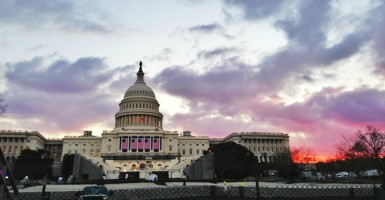On May 18, the Obama administration issued a new rule on overtime pay for employees, which at a stroke effectively turned millions of salaried employees into hourly employees eligible for overtime pay.
It was roundly (and rightly) condemned by employers and business groups nationwide, ranging from the U.S. Chamber of Commerce to the National Council of Chain Restaurants. But one organization stood out from the rest: U.S. Public Interest Research Group.
Founded by Ralph Nader, the U.S. Public Interest Research Group and its state-based member organizations have long been models of pro-regulation activism, campaigning for a bigger role for government in everything from financial markets to children’s toys. But on the expansion of overtime rules, they are firmly in the “no” camp.
In a statement released immediately after the Labor Department announced its action, Executive Director Andre Delattre stated that the group “will be forced to hire fewer staff and limit the hours those staff can work—all while the well-funded special interests that we’re up against will simply spend more.”
Welcome to the world of regulation, Delattre. Replace “special interests” with “competitors” and you’ve described the situation of every small business in America.
Yet, the folks at the Public Interest Research Group don’t see it that way. They are different. Research Group employees are not driven by money, but by the cause, says Delattre in an interview with The Huffington Post. “I think there is a difference,” he says, “between the people this rule is trying to protect and other people who are doing work they have chosen to do.”
“Someone working at McDonald’s to draw a paycheck,” The Huffington Post summarizes Delattre as saying, “is not the same as someone doing ‘mission-driven’ work.”
In other words, Public Interest Research Group people have a higher calling than the ordinary slob doing drudge work. It’s an interesting point: Why not regulate only those who work for mere profit, while exempting those who work for a cause?
But what counts as a cause? How about a start-up company working on a new technology that will revolutionize society? Certainly that is a good cause. Or a pharmaceutical firm working on a new life-saving drug? How about a store that provides inexpensive goods to low-income people (even if it is called “Wal-Mart”)? For that matter, why isn’t a fast-food franchise a “cause”? What if it is owned by a struggling minority family?
The U.S. Public Interest Research Group’s effort to explain why it should not be regulated—while everyone else is—fails. Dedicated as they no doubt are, Public Interest Research Group employees are not necessarily committed to a more important cause than other Americans.
Rather than try to separate itself from the great regulated unwashed, the U.S. Public Interest Research Group should work for a rollback of this ill-conceived regulation for everyone.


























